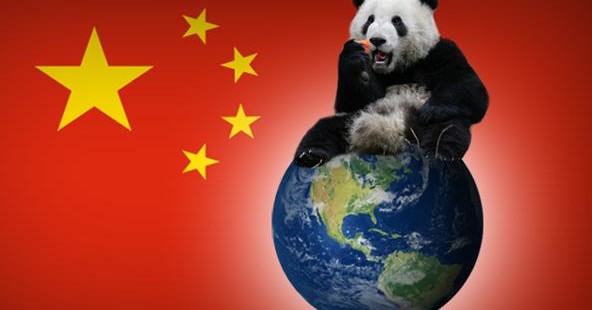
China Reboot: From Textiles and Tea to High Tech
The tea leaves have not yet settled in China after the ousting of Bo Xilai, a leading figure in the Chinese Communist Party and (until last week) a shoe-in candidate for a seat on the Politburo’s powerful standing committee. But Bo’s downfall-the biggest political quake of the past several decades in China-has opened the door on the secretive dealings of the Chinese leadership at precisely the moment of a delicate power shift from one generation to another.
Even with a shaft of light into the inner workings, Beijing is a hard read, but an outline is emerging. On the economic side, it looks as if we are in for another Japanese-style “miracle”-high growth at virtually any cost, and a tough, mercantilist bureaucracy managing trade to China’s best advantage. It is Japan redux, and it is going to be just as long a movie.
Remember all those arguments in the 70s and 80s between Washington and Tokyo over imports of U.S. beef, baseball bats, oranges, skis, rice, and a host of other products? Get ready for a replay. Car parts, solar panels, rare earths, and so on-these are just the beginning of hard times on the trade side between the U.S. and the mainland.
Whether the U.S. handles this intelligently is another question. In the case of Japan 40 years ago, the U.S. never quite grasped that the Japanese simply had another idea of capitalism, one in which the state naturally played a role. The same interpretation will have to be made again-in spades.
China is emerging from several decades of communism. The role of the state will remain more prominent for a longer time.
Politically, China has become a lot more interesting. One signal of this came after Bo Xilai’s dismissal as party secretary in Chongqing, a sprawling metropolis on the Yangtze River in western China. Premier Wen Jiabao, who will step down next fall, took a moment during his last press conference to assert that “China must develop its socialist democracy in a step-by-step manner.”
This was a startling assertion. “Social democracy,” roughly on the Nordic model, has been two things in China in recent years: The explicit goal of many of the Communist Party’s critics (who include many of its senior members) and a poisonous phrase to those in the party wielding real power. I have never previously heard either Wen or President Hu Jintao use the term.
The “step-by-step” phrase leaves the door open to interpretations. Either the senior leadership in Beijing has come to a serious recognition of the nation’s political fragility because of Bo’s startlingly popular invocation of Maoist-era songs and slogans; or its has no intention of letting political reform flow freely but felt called upon, during the last weeks of political confusion, to suggest it would.
We will know a lot more about China’s economic and political future when Xi Jinping and Li Keqiang assume the presidency and the premiership respectively, as is all but certain. In the meantime, Western observers can begin to temper their expectations, as they should in view of recent events. Example: Wen promised that the government would reconsider its method of managing the yuan, China’s currency-only to add that he thought the exchange rate is now “possibly near a balanced level.” So much for those American dreams of a 20 percent or 25 percent appreciation in the yuan’s value against the dollar.
Beijing now has to manage a tricky economic transition. It has already begun to advance from a low-cost, labor-intensive, investment-intensive economy to one based on more-advanced technology and a higher skilled workforce.
And it has to do this while managing a growth rate that declines from the 10 percent zone of the reform era to forecasts of 6 percent or 7 percent in the future. (Beijing’s projected growth rate for 2012 is 7.5 percent.) The social problems-income disparities, access to education, rising prices, jobs-are already evident and could easily worsen as this transition proceeds. Beijing knows this.

This means several things. First, the kinds of investments China will want and attract will shift up the technology chain-quite quickly from here on out. The current flap over China’s alleged subsidies for exporters of solar panels is typical of where the mainland is on the development ladder: It’s growing beyond T-shirts and textiles now but nowhere near, say, high-end medical equipment.
Second, managing the economy through so complex a passage suggests tight political controls, talk of social democracy notwithstanding. One of Bo Xilai’s apparent transgressions was to cultivate his popular appeal — Beijing’s leaders are nowhere near ready for so democratic a practice. They prefer to get things done and keep appointed people behind closed doors. Bo also raised fears of another Cultural Revolution in his references to the Maoist era-for which a surprising number of Chinese are nostalgic.
Finally, a forecast. I wanted to see Xi Jinping’s rise as an important generational shift toward a more liberal society — indeed, of the Nordic social democratic kind. It is not a daydream. Wen, during his recent appearance, spent much time talking about controlling the salaries of China’s super-rich and making credit more available to small and mid-sized businesses. When it comes, we will have to call it social democracy with Chinese characteristics, no doubt, but-let us not delude ourselves-it will be a long time coming.

